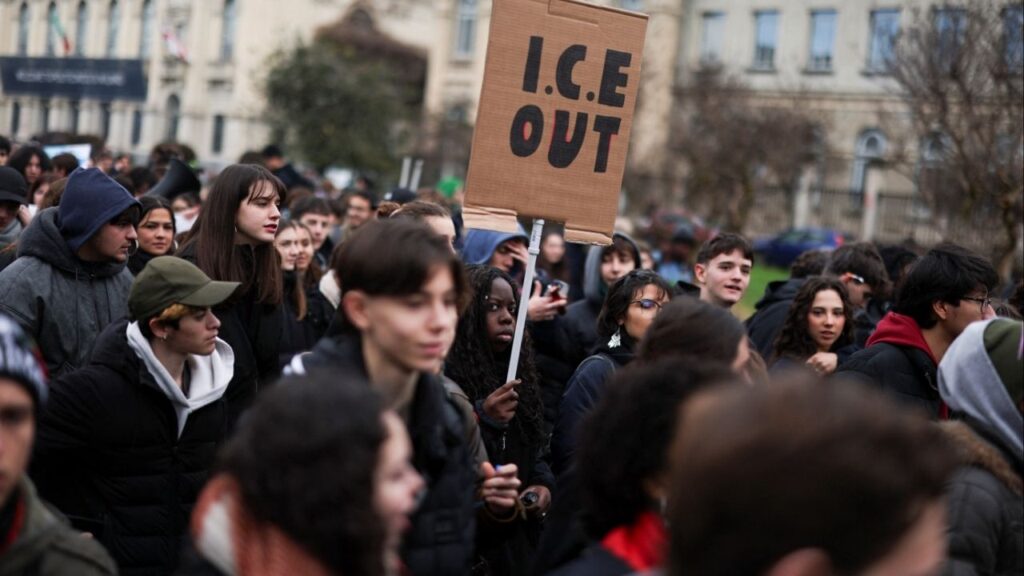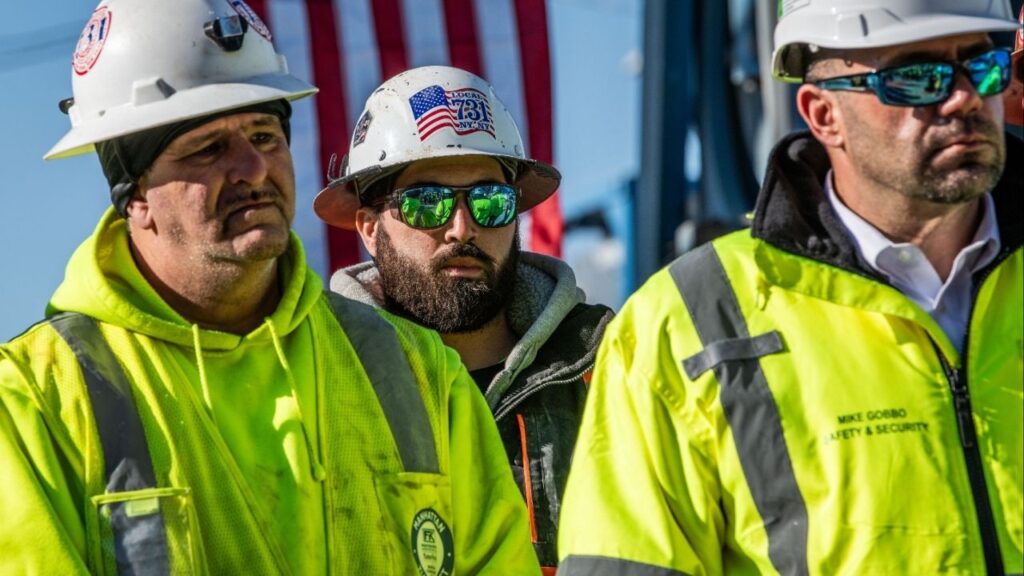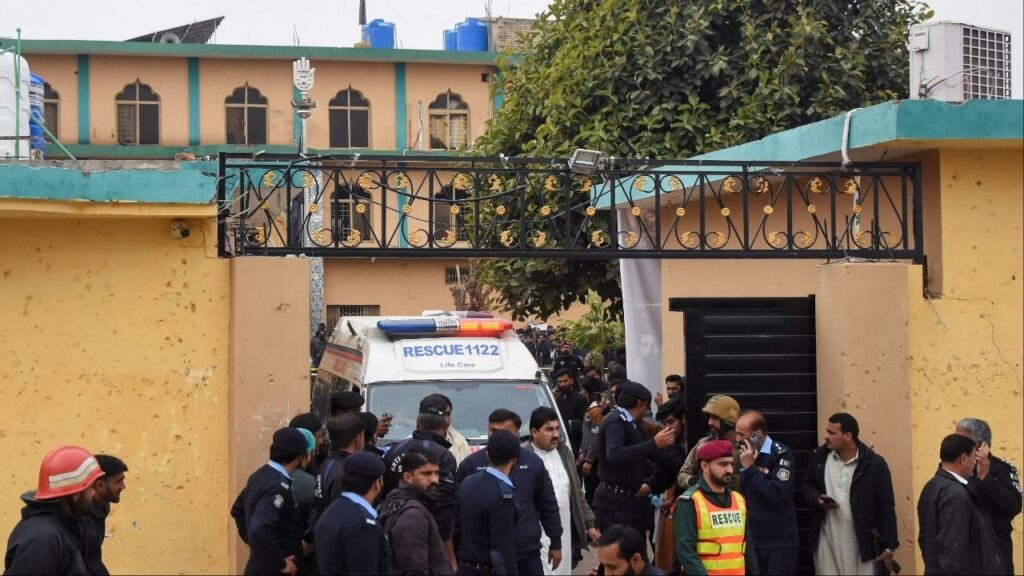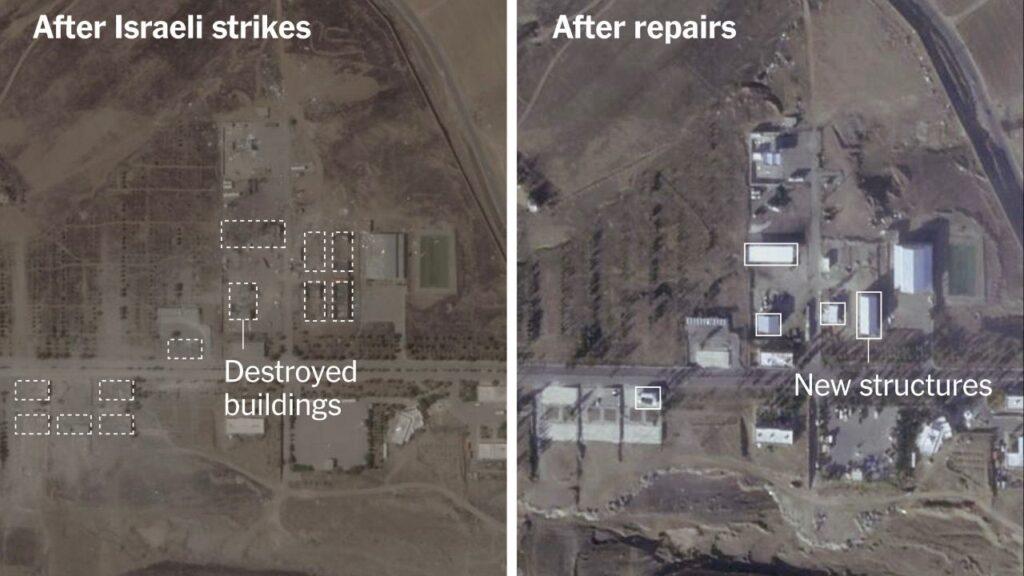Drug cartels in Mexico are expanding their reach, targeting major corporations and business leaders with extortion and violence. (AP/Veronica Cisneros)

- Femsa closes 191 Oxxo stores in Nuevo Laredo due to gang threats and employee abductions.
- American Chamber of Commerce survey reveals 12% of companies face cartel control over sales and distribution.
- Cartels diversify income by extorting businesses and taking over legitimate industries, from mining to internet services.
Share
|
Getting your Trinity Audio player ready...
|
CIUDAD VICTORIA, Mexico — Even Mexico’s largest corporations are now being hit by demands from drug cartels, and gangs are increasingly trying to control the sale, distribution and pricing of certain goods.
Well-known, high-ranking business leaders aren’t safe.
On Monday, the head of the business chambers’ federation in Tamaulipas state, across the border from Texas, gave television interviews complaining about drug cartel extortion in the state. Hours later on Tuesday, Julio Almanza was shot to death outside his offices in the city of Matamoros, across from Brownsville, Texas.
“We are hostages to extortion demands, we are hostages of criminal groups,” Almanza said in one of his last interviews. “Charging extortion payments has practically become the national sport in Tamaulipas.”
Related Story: Major Mexican Cartel Drug Ring Busted by Valley Agents
Major Retailer Closes Stores Due to Gang Threats
The problem came to a head when the Femsa corporation, which operates Oxxo, Mexico’s largest chain of convenience stores, announced late last week that it was closing all of its 191 stores and seven gas stations in another border city, Nuevo Laredo, because of gang problems.
The company said it had long had to deal with cartel demands that its gas stations buy their fuel from certain distributors. But the straw that broke the camel’s back came in recent weeks when gang members abducted two store employees, demanding they act as lookouts or provide information to the gang.
Since convenience stores are used by most people in Mexico, the gangs see them as good points to keep tabs on the movements of police, soldiers and rivals.
“We had incidents in stores that consisted of them (gangs) demanding we give them certain information, and they even abducted two colleagues to enforce this demand,” Roberto Campa, Femsa’s director of corporate affairs, told local media.
In a statement Monday, Femsa said its stores in Nuevo Laredo remain closed this week “due to acts of violence that put our colleagues’ safety at risk.”
Related Story: Feds Bust Mexican Cartel That Smuggled Drugs to Valley in Veggie Boxes, Gas ...
Cartels Expanding Control Over Businesses
Cartel violence in Mexico has long been focused on smaller businesses, where owners often visit their shops and are easily abducted or approached by gang members to demand extortion payments. But Femsa is the largest soft drink bottler in Latin America, the largest Coca Cola bottler by sales volume and is listed on the Mexican stock exchange.
Nuevo Laredo has long been dominated by the Northeast Cartel — an offshoot of the old Zetas cartel — but the problem is starting to hit larger companies nationwide. Sectors ranging from agriculture, fishing and mining to consumer goods have been plagued by cartels trying to essentially take over their industries.
This week, the American Chamber of Commerce, whose members tend to be larger Mexican, American or multinational corporations, released a survey of its members in which 12% of respondents said that “organized crime has taken partial control of the sales, distribution and/or pricing of their goods.”
That means drug cartels are distorting parts of Mexico’s economy, deciding who gets to sell a product and at what price — and in return they are apparently demanding sellers pass a percentage of sales revenue back to the cartel.
In the past, cartels have carried out violent attacks, arson and even killings of those found selling goods that had not been “authorized” by them or bought from distributors they control.
About half of the 218 companies in the American Chamber survey said that trucks carrying their products had suffered attacks, and 45% of the companies said they had received extortion demands for protection payments.
Of the companies that reported how much they had to spend on security measures, 58% said they spent between 2% and 10% of their total budgets on security; 4% spent at least a tenth of their total outlays on security measures.
On Tuesday, Femsa said in a statement that it was making progress in talks with authorities that might provide guarantees for the safety of its employees and allow the chain to reopen its stores in Nuevo Laredo.
Related Story: The US Sanctions Mexican Sinaloa Cartel Members and Firms Over Fentanyl ...
Cartels Diversifying Income Sources
Mexico’s powerful drug cartels have expanded their income sources by both extorting money from companies and even taking over legitimate businesses.
In 2014, authorities confirmed the Knights Templar cartel had essentially taken over exports of iron ore from the western state of Michoacan, and the ore trade with China had become perhaps its biggest single sources of income.
Cartels have also been accused of controlling production and manipulating domestic prices for crops like avocados and limes.
And late last year, authorities in Michoacan confirmed one cartel had set up its own makeshift internet system and told locals they had to pay to use its Wi-Fi service or they would be killed.
Dubbed “narco-antennas” by local media, the cartel’s system involved internet antennas set up in various towns built with stolen equipment. The group charged approximately 5,000 people elevated prices between 400 and 500 pesos ($25 to $30) a month.
Femsa’s Oxxo convenience stores are a target in part because they are so ubiquitous in Mexico: there are about 20,000 nationwide. In 2022, gangs set fires at about two dozen of the stores in the central state of Guanajuato to protest attempts to arrest a cartel leader.
In 2009, police in the western state of Jalisco found at least four severed heads in Styrofoam coolers with the stores’ logo on them; such coolers were sold to hold chilled drinks, but it became something of a trend for gangs to use them to hold decapitated heads.
RELATED TOPICS:
Categories

Anti-ICE Protesters Rally in Milan Ahead of Opening Ceremony

$16 Billion Hudson River Tunnel Project Begins to Wind Down

















